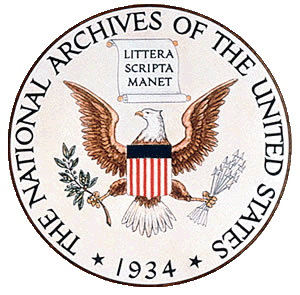
REPRODUCED AT THE NATIONAL ARCHIVES
EMBASSY, Chungking (via Navy)
To: Secretary of State, Washington
Dated: May 8, 1945. 10 a.m.
From Special War Problems Division
Date: May 29, 1945
In the Weihsien area of Shantung, Commander Wang is the leader of independent guerrilla forces. His agent has reached Chungking with written reports dated March 3 from Hummel and Tipton. The reports, outlined below, give more information on conditions in the Concentration Camp at Weihsien.
Letters and supplies which on December 12 were parachuted to earth have not yet reached the Weihsien internees. This is due to greatly increased strictness of Japanese control and surveillance. However, Hummel and Tipton are making great efforts to forward badly needed medicaments such as antitoxins, opiates and anaesthetics to the Tsingtao Swiss Consul to ship through (his) channels to the camp.
Since two fences of electrified wire and deep ditch now surround the camp, it is exceedingly difficult to have clandestine communications and operations on the black market have stopped altogether. Comfort money MRB$400 per month, which at the percent rate of exchange equals CN$1000, is now credited to each internee who may draw supplies against this amount from the camp canteen in order to be provided with toilet necessities and to supplement the diet. Since money is now of no use to the internees, the sum of money dropped by parachute are to be used to aid British and American nationals still living in Tsingtao, Peking and Tientsin.
Detailed information concerning the internees cannot be had but apparently Japanese treatment is not worse than it was when Hummel and Tipton escaped and it is reported that living conditions are much worse in the port cities than in the camp. Periodic visits are still made to the camp by the Tsingtao Swiss Consul and by the Catholic representatives from Tsinan.
Hummel and Tipton, after living eight months with the guerrilla forces of Commander Wang, believe that their previous report of June 26 is exact in every respect except the number of guerrilla troops. (Embassy despatch 3072 of October 18.) Fifteen thousand is believed to be the figure for later, of which twelve thousand bear arms, rather than thirty thousand as that report indicated. Since equipment is of poor quality and mainly of local manufacture, military action is confined to defending the area against increasingly repeated punitive raids by puppet and Japanese troops.
Having witnessed operations, Hummel and Tipton feel that the inability to present more effective resistance is caused solely by lack of ammunition. Commander Wang, according to Hummel and Tipton, is concerned about the internees’ safety should the Japanese withdraw. He wishes to assure adequate protection but unless he receives a supply of powder or ammunition this may prove to be impossible. Hummel and Tipton also advocate sending a qualified army officer as liaison between Chungking and Wang’s area. He should have a radio.
It is my opinion that the presence in Weihsien Camp of one thousand British and two hundred Americans justifies furnishing Commander Wang the necessary explosives and ammunition to safeguard Allied nationals. At any earlier date I shall have a discussion on the matter both with GMO and General Wedemeyer.
(Signed) Hurley





